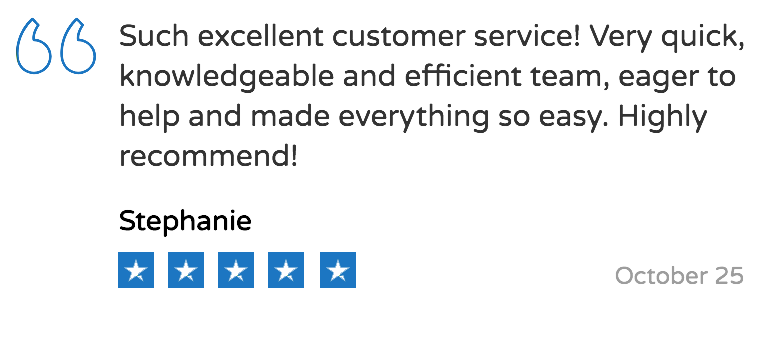Your
6+ Years Acing Homework | 350k+ Happy Students
- Homework
- Assignment
- Quiz
- Test
- Proctored Exam
- Essay
- Project
- Full Online Class
Get Homework Help on These Platforms
We have extensive experience doing homework for students on these online platforms boosting your grades
- Canvas
- Backboard
- Pearson MyLab
- MyMathLab
- MathXL
- WebAssign
- MyOpenMath
- ConnectMath
- HawkesLearning
- Connect
- Aleks
- D2L (Desire2Learn)
- Cengage
- Moodle
- WileyPlus
- MacGraw-Hill
- Straighterline.Com
- Sophia.Org
- Study.Com
- Many Others
From Classroom to Career: Transitioning with an Accounting Degree
You’ve put in the hours, aced the exams, and finally, you’re on the verge of graduating with your accounting degree. But what’s next? Transitioning from the classroom to a career in accounting can seem like a challenging job. But don’t worry, you’re not alone in this journey.
In the ever-evolving world of finance, an accounting degree opens a multitude of doors. But how do you navigate through these opportunities and kickstart your career? This article will guide you through the process, providing you with key insights and practical tips to help you make a smooth transition.
Whether you’re eyeing a role in a top quality accounting firm or considering starting your own practice, we’ve got you covered. So let’s immerse and explore how you can turn that hard-earned degree into a thriving career in accounting.
Navigating Success in College with My Accounting Lab

The CPA journey begins here.
Understanding the Job Market
In today’s competitive and fast-paced world, becoming familiar with the job market is a crucial step in making your transition from a classroom to an illustrious career with an accounting degree.
Jobs in accounting are growing at a steady pace. According to the U.S. Bureau of Labor Statistics, accounting job opportunities are expected to grow by 4% from 2019 to 2029. Here is a quick look at the job outlook.
| Year | Accounting Job Opportunities |
|---|---|
| 2019 | Steady |
| 2029 | Expected 4% growth |
But hold on, it’s not only about finding job openings. You need to understand the nuances of the job market. What type of accountant fits you best? What industry should you target? With an array of sub-fields in accounting such as tax accounting, management accounting, and forensic accounting, it’s important to identify where your passion and expertise lie.
For instance, consider the following:
- The energy or tech sectors are known for their fast-paced and dynamic environment.
- Non-profit organizations and government sectors offer stability and opportunities for work-life balance.
But it’s not enough to pinpoint your interest. To stand out in this job market, you’d want to continually update your skill set. Relevant certifications like a CPA (Certified Public Accountant) or CFA (Chartered Financial Analyst) are held in high esteem. Plus, soft skills like effective communication, problem-solving, and leadership also play a significant role in this competitive world.
In the next section, we’ll explore deeper into steps you can take to hone these skills and position yourself as an ideal candidate in this job market.
Building a Strong Foundation: Basic Accounting Principles Explained
Building a Strong Resume
Building a strong and effective resume is vital when transitioning from the world of academia to professional accounting. It’s the first glimpse employers will get into your academic achievements, experiences, and potential, making it a crucial step in the job-hunting process.
You’ve already begun creating your professional persona through the attainment of your accounting degree. What’s next is ensuring this persona shines brightly on your resume.
Highlight Key Skills
There are specific accounting skills that employers consistently look out for:
- Proficiency in accounting software
- Analytical problem-solving
- Ethical judgment and decision-making
Make sure these skills are clearly visible on your resume. If you have internships or work-experience where you’ve demonstrated them, list these instances under your employment history.
Showcase Certifications and Credentials
If you possess any additional certifications—like a Certified Public Accountant (CPA) license or Certified Management Accountant (CMA) credentials—make these stand out. They’re proof; you’ve pushed beyond the minimum requirements, showing a drive for excellence and commitment to your career.
Demonstrate Your Soft Skills
While your technical abilities lay the groundwork, showcasing your soft skills can really make you stand out in the highly competitive world of accounting. Teamwork, communication prowess, and adaptability, are values sought after by many employers. So, illustrate these with succinct concrete examples wherever you can.
Your resume serves as the bridge between your academic achievements and your professional future. Spend time making it a true reflection of your potential and dedication to pursue a fulfilling accounting career.
Networking and Professional Connections
One of the key steps in kickstarting a thriving career in accounting is building your network. You’ll often hear the phrase, “It’s not what you know, it’s who you know,” and in many cases, that’s spot on. A solid professional network can be a strong deciding factor in landing the first job after your graduation or climbing up the corporate ladder.
Contact building isn’t solely about attending events or shaking hands with strangers. It’s about creating meaningful, lasting relationships with peers, mentors, and employers. Start by connecting with your professors and fellow students. Being proactive in participating in accounting clubs and organizations at your college can provide you with significant opportunities that include building contacts, gaining knowledge, and even acquiring vital experience.
Choosing the right platform to establish your online presence is equally important. LinkedIn is a great platform for professionals and should be your go-to online networking tool. Here’s how you can optimize your LinkedIn profile:
- Set up a professional profile picture and an engaging headline.
- Include keywords related to accounting in your profile summary.
- Add a detailed section about your experience and education.
- Regularly update your profile, post content, and engage with others.
Networking doesn’t stop at graduation. Attend industry events, join an accounting association, and forge connections that will lend credibility to your professional identity. Interactions with established professionals may open new doors to extensive job opportunities, partnerships, or internships.
Remember, establishing a professional connection is a long-term investment, and it’s a process that evolves with your career. Strive to keep building and maintaining your relationships and be open to learning from each person you connect with.
Gaining Practical Experience
Earning your accounting degree’s only the first step, buddy. In the dynamic world of finance, it’s all about the practical experience. You’ve got to get your hands dirty!
Internships: The Golden Gateway
Most students associate the term ‘Internship’ with ‘Free Labor’, but you need to turn that idea right around. Internships provide a golden chance to apply what you learned in class to real-world scenarios.
Did you know most accounting firms recruit future employees through internship programs? That’s right. A killer performance during an internship can turn into a high-quality job offer.
Part-Time Jobs & Online Freelancing
Not a big fan of internships? No worries. Consider seeking part-time accounting roles around your campus or online freelancing gigs. Don’t under-rate these opportunities, they can offer vital industry experience. Plus, they add some hefty weight to your resume!
Volunteer Work: Do Good and Learn
Serving in volunteer roles such as a treasurer for a local club or nonprofit organization can also give you valuable accounting experience. You’re not only growing professionally, you’re also giving back to your community. It’s a double win!
Don’t forget about the various online platforms where you can volunteer virtually
Navigating the Interview Process
Embarking on the journey from the classroom to a corporate career can seem daunting. Yet, your accounting degree offers you an advantage. Preparing for an interview requires insight and appropriate measures to ensure a successful outcome.
Firstly, familiarize yourself with the common interview questions in the accounting sector. It’s not just about demonstrating your knowledge of balance sheets and income statements. Interviewers aim to gauge how well you can handle difficult clients, resolve complex finance issues, and comply with stringent laws and regulations.
- How do you minimize the risk of an error in your work?
- Describe a complex finance project you have managed.
- How have you handled a difficult client situation?
Next, bring your academic experience to the fore. Highlighting your coursework, projects, and internships helps supplement your professional skills with real-world experiences. Remember, interviewers are intrigued by candidates who can apply theory to practice.
Then think about crafting your responses using the STAR method (Situation – Task – Action – Result). This method helps you give a comprehensive answer, starting from explaining the situation, discussing the task at hand, describing the action you took, to conveying the result.
Lastly, there’s no need to panic! Doing so only increases your chances of making a mistake. Remain calm, take deep breaths, and respond to the questions with confidence. There’s a lot your accounting degree has equipped you with, and the interview process is the opportunity to showcase it.
Ensure you use these techniques to your advantage. The accounting profession awaits your arrival, and a successful interview represents the key to unlock that door.
Identifying Career Paths in Accounting
Your journey from classroom to career can be daunting. Yet, it’s your chance to explore the diverse opportunities that an accounting degree offers. It’s not always about crunching numbers and back-office work. In fact, careers in accounting spread across public, private, and government sectors, giving you a broad range of paths to pursue.
For instance, you may want to consider becoming a Certified Public Accountant (CPA). This popular designation involves auditing financial statements and providing tax advice, often for corporations. A CPA credential is highly valued in the industry, and it’s seen as a stepping-stone to high-ranking accounting positions.
Alternatively, you can venture into Forensic Accounting where you’ll investigate fraud and legal disputes. Skill sets needed here are problem-solving abilities, keen detail-orientation, and comprehensive auditing experience.
You may also look into Management Accounting. Here, you’ll be a key player in strategic decision-making for a business, focusing on cost management, financial planning, and performance evaluation.
If you picture yourself in an IT-oriented role, Information Technology (IT) Accounting may be your calling. Here you will use your accounting knowledge to design and control information systems for financial data.
You might also consider roles like an Environmental Accountant, where you’ll be tasked with relaying the impact of a business’s decisions on the environment or a Tax Accountant, specialized in creating and implementing tax strategies.
Remember, you can tailor your career around your personal interests and skills, and these roles will require different certifications. Hence, consider broadening your scope by obtaining relevant certifications like Certified Information Systems Auditor (CISA), Chartered Global Management Accountant (CGMA), or Certified Fraud Examiner (CFE), when it aligns with your career goals.
So there you have it! With an accounting degree, your career possibilities are expansive. As you continue your career journey, remember to remain adaptable and open to diverse roles within this dynamic field. This not only opens more doors but also ensures longevity in your accounting career.
Continuing Education and Certifications
So you’ve navigated the trenches of academic rigor and successfully graduated with an accounting degree. Hurray! But what’s next? Understanding the significance of continuing education and acquiring the right certifications puts you on the right path. These two aspects could give you the edge in a competitive job market.
Accounting is a dynamic field. Like technology, it evolves. Staying relevant implies consistently updating your skills and knowledge to align with the ever-changing world of numbers. You can achieve this by enrolling in continual learning programs, which offer up-to-date training on current practices. Online platforms like Coursera, EdX, and even LinkedIn offer a countless of such courses.
In addition, special certifications could make your résumé catch an employer’s eye. While acquiring an accounting degree is a big step, certain roles may require additional qualifications. Let’s investigate into a few:
- Certified Public Accountant (CPA): Considered one of the topmost accounting qualifications. It opens doors to several roles in auditing, consulting, tax services, and more.
- Certified Management Accountant (CMA): If management accounting interests you, then the CMA is your charm. It equips you with the skills to understand and navigate the financial side of management decisions.
- Certified In Financial Forensics (CFF): Fancy some detective work? The CFF enables you to unravel financial complexities in litigation cases.
- Certified Information Systems Auditor (CISA): As the world becomes more digital, accounting’s not left out. The CISA prepares you for roles in IT accounting.
Conclusion
Transitioning from an accounting degree to a thriving career may seem daunting, but it’s more than achievable with the right approach. By understanding the job market, pinpointing your ideal accounting role, and continually honing your skills, you’re setting the foundation for success. Don’t underestimate the power of a well-crafted resume and practical experience gained through various channels. Networking is your secret weapon, opening doors to opportunities and connections in the accounting field.
Remember, there’s an array of career paths within accounting, each with its unique appeal and requirements. Whether it’s a CPA, Forensic Accountant, Management Accountant, IT Accountant, Environmental Accountant, or Tax Accountant, the choice is yours.
Enhance your prospects with relevant certifications like CPA, CMA, CFF, and CISA. These aren’t just letters after your name; they’re a testament to your commitment to stay ahead in a competitive market. With continual learning and adaptability, your accounting degree is just the beginning of a rewarding career journey.
REQUEST A QUOTE Chat, Text or Email Us and Get a Quote Within Minutes
Order NowThe difficulty of a subject can be and is a big challenge for students. When concepts are hard to grasp, especially in subjects like advanced mathematics or statistics, these students see no other choice but to reach out to websites that provide homework assistance. This is especially the case with students that are taking their classes online who are missing the study group experience with their peers or hearing an in-person lecture on campus.
An overwhelming workload from multiple classes can make it challenging for many students to dedicate the necessary time and energy to all those homework assignments. When faced with deadlines for essays, projects and exams all due around the same time, the pressure can easily push students to hire someone to do that coursework. It is easy to assume that students can handle everything, but when faced having to free up countless hours to manage a heavy workload, the time is just not there.
Stress and anxiety about meeting fast approaching deadlines can be extremely overwhelming for students. The fear of not having studied enough to pass that test or exam when faced with increasing performance expectations by the academia can be paralyzing. This can lead to a situation where students feel that the only way to make it through is by paying someone to do their homework and make it one step closer to graduation.
A lack of time is another major factor driving students to outsource their homework. Busy schedules filled with extracurricular activities, part-time jobs, and family commitments can leave little to no room for homework and exams. This lack of available time is particularly challenging for college students who are trying to balance overwhelming academic responsibilities with personal development and a fulfilling social life. There are many aspects of life that are more important and hiring homework help services is the better alternative for achieving a balance.
Real Customer Reviews













